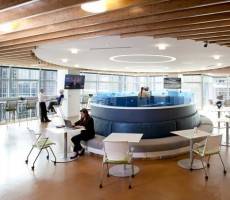October 2, 2014
Increasing numbers of over-65s will require flexible working rights
 We can get so preoccupied with meeting the younger generation’s more flexible approach to work, that we miss the fact that a much greater challenge for employers is in managing the needs of the older workforce. Figures released by the Department of Work and Pensions (DWP) show that nearly a quarter of a million more people aged 65 and over have remained at work since the default retirement age was abolished three years ago. This means that more than a million (103,000) over 65s now choose to stay in work, compared to 874,000 in the quarter October to December 2011 – an increase of 229,000. There are now 9.1 million people aged 50 plus at work, accounting for 29.7 per cent of all those in work aged 16 plus in the UK (30.6 million). This means employers not only need to accommodate an increasingly diverse range of ages but must enable older workers to work more flexibly as they wind down from working life. (more…)
We can get so preoccupied with meeting the younger generation’s more flexible approach to work, that we miss the fact that a much greater challenge for employers is in managing the needs of the older workforce. Figures released by the Department of Work and Pensions (DWP) show that nearly a quarter of a million more people aged 65 and over have remained at work since the default retirement age was abolished three years ago. This means that more than a million (103,000) over 65s now choose to stay in work, compared to 874,000 in the quarter October to December 2011 – an increase of 229,000. There are now 9.1 million people aged 50 plus at work, accounting for 29.7 per cent of all those in work aged 16 plus in the UK (30.6 million). This means employers not only need to accommodate an increasingly diverse range of ages but must enable older workers to work more flexibly as they wind down from working life. (more…)









 Given the track record of people when it comes to making predictions about the future, it’s easy to grow cynical, especially when it involves a profession as subject to the vagaries of technological and cultural change as facilities management. But while we should be wary of more fanciful and long term thinking, any natural scepticism shouldn’t blind us to those predictions that we know will largely come true, especially those based on what we know is happening already. For example, recent research carried out by Cass Business School and Henley Business School and presented in the book
Given the track record of people when it comes to making predictions about the future, it’s easy to grow cynical, especially when it involves a profession as subject to the vagaries of technological and cultural change as facilities management. But while we should be wary of more fanciful and long term thinking, any natural scepticism shouldn’t blind us to those predictions that we know will largely come true, especially those based on what we know is happening already. For example, recent research carried out by Cass Business School and Henley Business School and presented in the book 









September 5, 2014
Workplace design is increasingly interwoven with the dynamics of the city
by Colin Watson • Comment, Facilities management, Workplace design
(more…)